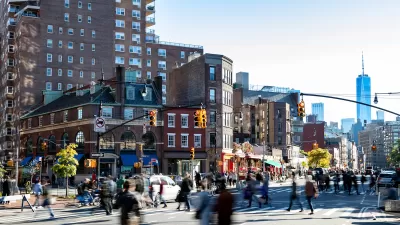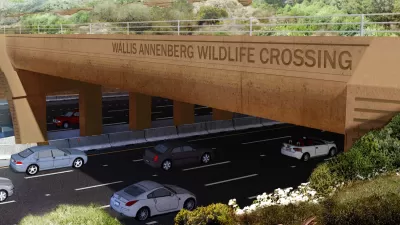An op-ed in the Boston Globe argues that the endless negotiations over new residential developments—including over the inclusion of affordable housing units—hurts the city's housing market.
Dante Ramos takes the example of the Copley Place—a 542-unit residential tower approved in 2013 by the Boston Redevelopment Authority, beset again and again by delays—to argue in favor of a much more relaxed regulatory environment.
Ramos explains his approach to supply and demand as follows:
In a tight housing market, every new unit helps — even units sold to 1-percenters at eye-popping prices. Today’s luxury unit is tomorrow’s fixer-upper. When private-equity barons and suburban empty-nesters buy into glitzy new condo towers, they’re not pushing up the cost of units in historic brownstones and older loft buildings. When middle-class professionals can afford existing units in the Back Bay and Beacon Hill, they aren’t bidding up prices in Roxbury, Dorchester, and South Boston.
According to Ramos's line of thinking, requiring developers to include affordable housing incurs unintended consequences that work at cross purposes with the affordable housing agenda:
This policy is ironic: States impose stiff cigarette taxes in part because they want fewer people to smoke; countries in Europe tax gasoline heavily to discourage unnecessary driving. Cities that need more market-rate housing should make it easier, not harder, to construct. When Houston officials concluded that there wasn’t enough housing downtown, they went as far as offering $15,000-a-unit incentives to persuade developers to build it."
Ramos is really calling for an end to the regulatory and legal mechanisms that enable NIMBYism, with more details from the Copley Place example and more strongly worded rhetoric included in the full article.
FULL STORY: Copley tower dispute shows how not to get more housing built

Pennsylvania Mall Conversion Bill Passes House
If passed, the bill would promote the adaptive reuse of defunct commercial buildings.

Planning for Accessibility: Proximity is More Important than Mobility
Accessibility-based planning minimizes the distance that people must travel to reach desired services and activities. Measured this way, increased density can provide more total benefits than increased speeds.

World's Largest Wildlife Overpass In the Works in Los Angeles County
Caltrans will soon close half of the 101 Freeway in order to continue construction of the Wallis Annenberg Wildlife Crossing near Agoura Hills in Los Angeles County.

Alaska Village Becomes Test Case for Climate Change Relocation
The Yup’ik village of Newtok is the first Alaska community to begin a full-scale relocation necessitated by the impacts of climate change. Another 31 Alaska communities remain vulnerable.

Amtrak Takes Lead on Texas Central Rail
The high-speed rail project isn’t a done deal, but if it moves forward, trains could begin operating in 2030.

Maine Approves Rent Relief Program
Legislators hope the assistance program will help struggling low-income households avoid eviction.
City of Costa Mesa
Licking County
Barrett Planning Group LLC
HUD's Office of Policy Development and Research
Mpact Transit + Community
HUD's Office of Policy Development and Research
Tufts University, Department of Urban and Environmental Policy & Planning
City of Universal City TX
ULI Northwest Arkansas
Urban Design for Planners 1: Software Tools
This six-course series explores essential urban design concepts using open source software and equips planners with the tools they need to participate fully in the urban design process.
Planning for Universal Design
Learn the tools for implementing Universal Design in planning regulations.


























